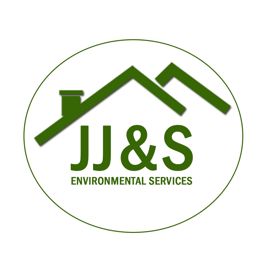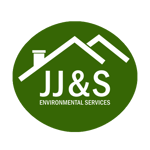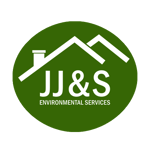5 Habits of Successful Insurance Agents
5 Habits of successful insurance agents
-
Consistent Client Outreach: Top agents regularly connect with clients and prospects, making them memorable and trusted resources. This habit is especially valuable when working with high-risk industries, like those needing asbestos and mold coverage.
-
Specialized Knowledge: Successful agents stay educated, especially on niche policies like asbestos and mold remediation. Understanding specific regulations, like Cal-OSHA standards, sets them apart and adds value for clients.
-
Goal-Oriented Planning: Setting clear, achievable goals helps agents manage their workload and grow their business. In fields like environmental risk insurance, this targeted planning is key to securing high-value clients.
-
Strong Problem-Solving Skills: The best agents are quick thinkers, able to tailor policies to fit unique client needs, especially for complex risks involving asbestos and mold liability.
-
Adaptability: As market needs evolve, successful agents adapt. They stay ahead of industry changes to offer the most relevant coverage, ensuring clients are protected against emerging risks in asbestos and mold remediation.
Habits of successful insurance agents: what sets Top Performers apart
In the insurance industry, having the right habits can make all the difference. Habits of successful insurance agents pave the way for their achievements, helping them navigate complex situations and secure profitable policies. For those specializing in high-risk areas like asbestos removal and mold remediation, understanding how to thrive in this challenging market is essential. Let’s explore what it takes to succeed and grow.
What Type of Insurance Makes the Most Money?
Insurance that covers high-risk scenarios, like asbestos and mold-related issues, is often among the most profitable. Due to the health risks and regulatory demands around asbestos and mold, these policies are not only high-value but essential for many businesses. Agents who specialize in high-risk environmental insurance are often able to provide substantial value, making them highly sought after. With these skills, agents can ensure their clients are fully covered against environmental hazards, and they can secure long-term clients who value tailored solutions.
.jpg?width=7360&height=4912&name=business-couple-architectural-model%20(1).jpg)
Why Having a Good Foundation is Key
The best agents start their day with careful planning and a clear schedule. Whether it’s presetting appointments or planning strategic outreach, preparation is critical. Successful agents set routines, work with clear goals, and focus on connecting with clients consistently. Many find that personal routines help with daily productivity and maintaining focus, setting them up for success even before client calls begin.
What Makes a Bad Insurance Agent?
Bad habits, such as inconsistency, lack of follow-through, or poor listening skills, can easily derail an insurance career. Agents who don’t prioritize clients’ needs or fail to provide consistent support often find themselves losing business. Top-performing agents, on the other hand, build trust with their clients through attentive service and by staying updated on changes in the industry, especially around regulations impacting asbestos and mold.
Connecting with People: The Heart of Success
Forming strong relationships is one of the most significant habits of successful insurance agents. Agents spend a considerable amount of time networking, following up with leads, and visiting prospects. Successful agents make it a habit to connect with people in person or online, which keeps their services top of mind. By regularly reaching out to clients and new prospects, insurance agents can open doors for mutually beneficial partnerships and establish their expertise in areas like asbestos abatement and mold remediation coverage.
What Skills Do Insurance Agents Have?
To thrive in the insurance industry, agents need a well-rounded skill set. Core competencies include:
- People Skills: Building and maintaining trust with clients is critical.
- Problem-Solving: Every client’s needs differ, so agents need creative solutions.
- Negotiation Skills: Finding common ground, especially in high-stakes scenarios, is essential.
- Attention to Detail: In asbestos and mold policies, every detail matters.
- Self-Motivation: Top agents are driven and resilient, even in challenging situations.
Prioritizing High-Value Insurance
In the insurance world, agents who focus on high-value policies, particularly for environmental issues like asbestos and mold, can secure profitable relationships. High-risk policies demand a deep understanding of regulatory standards, especially in California. As a result, agents who become specialists in this area can not only earn more but also provide essential services that protect their clients’ businesses. The importance of offering comprehensive coverage, specifically for industries exposed to asbestos risks, cannot be overstated.
Habits to Cultivate for Long-Term Success
-
Consistency: Successful agents are consistent in outreach and follow-ups. Maintaining regular contact ensures clients feel valued and supported.
-
Education: Ongoing learning about industry changes, especially around asbestos and mold regulations, keeps agents informed. Regular training on current standards like Cal-OSHA and APCD regulations gives agents a competitive edge.
-
Adaptability: Flexibility is key. Agents should be ready to pivot and adapt to market needs, especially in high-stakes fields like environmental insurance.
-
Goal Setting: Setting short- and long-term goals drives productivity. By focusing on achievable milestones, agents can build a steady pipeline of clients.
Why Choose Asbestos and Mold Coverage as a Specialization?
Offering asbestos and mold remediation insurance fills a critical niche in California’s insurance landscape. Many industries, from property management to construction, require this coverage to comply with state regulations. Agents who specialize in these areas gain an advantage, becoming go-to resources for businesses that need this vital protection.

Understanding the Role of Insurance in Asbestos and Mold Remediation
Asbestos and mold remediation are high-risk operations with strict regulations. Insurance agents who understand these risks and can communicate them to clients effectively will stand out. Ensuring that clients are aware of the importance of these coverages, and how they protect against liability, sets successful agents apart. Policies covering asbestos abatement offer a layer of financial security for companies navigating compliance and operational risks, creating value and trust between agents and their clients.
Making the Most of the Insurance Industry’s Opportunities
For agents aiming to grow their portfolios, focusing on high-risk, high-value policies is a smart strategy. Not only does it provide more income potential, but it also fosters a specialized reputation. By regularly updating skills, maintaining consistent client contact, and demonstrating expertise, agents can establish themselves as leaders in the industry. This focus on specialized insurance for asbestos and mold shows clients that their agent is well-versed in risk management, ultimately building trust.
FAQ
1. What are the essential habits of successful insurance agents?
Successful agents consistently connect with clients, maintain specialized knowledge, set clear goals, develop problem-solving skills, and stay adaptable. For agents specializing in high-risk fields like asbestos and mold insurance, these habits are vital for building trust and offering valuable coverage.
2. Why is specializing in asbestos and mold insurance profitable for agents?
Policies covering high-risk areas, like asbestos removal and mold remediation, are crucial due to health risks and regulatory requirements. These policies tend to be high-value, as they protect businesses from liability and compliance issues, making this a profitable specialization for agents.
3. How does an insurance agent support clients in asbestos and mold-related fields?
Agents provide critical guidance on policies that address asbestos and mold risks. They offer coverage to meet regulations like Cal-OSHA Title 8, ensuring clients remain compliant and protected from potential liabilities related to these environmental hazards.
4. What skills are most important for an insurance agent in California?
Core skills for California insurance agents include strong people skills, problem-solving abilities, negotiation techniques, and attention to detail. Specialized knowledge in environmental regulations for asbestos and mold is also essential to serve high-risk industries effectively.
5. How does adaptability benefit an insurance agent’s career?
Adaptability allows agents to respond to market changes and evolving regulations, such as those around asbestos and mold. Staying flexible and informed enables agents to provide up-to-date, relevant coverage options that align with current client needs.
6. What makes a bad insurance agent in the high-risk insurance field?
A poor agent is often inconsistent, fails to follow up, and lacks specific knowledge in fields like asbestos and mold. These issues can lead to lost trust and missed opportunities, as clients need reliable coverage that only knowledgeable agents can provide.
7. Which insurance policies are best suited for asbestos and mold remediation businesses?
Asbestos and mold remediation businesses require specialized liability insurance that covers high-risk environmental hazards. Agents with expertise in these areas can recommend policies that align with industry standards, providing essential protection for these businesses.
8. How can agents build relationships with high-risk clients?
Agents in high-risk fields should establish regular communication, educate clients on coverage options, and offer tailored solutions for asbestos and mold remediation. Building a network within the industry and demonstrating knowledge are key to fostering long-term relationships.







